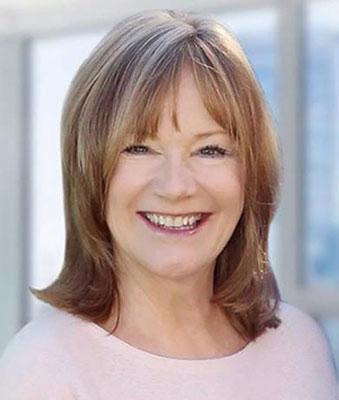Women are playing an integral role on REIT corporate boards today as awareness and appreciation of the benefits their presence can make to a company’s overall success continues to gain traction. While reaching gender parity is still some ways off, observers say the rising number of women in executive and c-suite roles, and growing interest among women to hold board seats, positions the industry for continued progress in years to come.
According to an MSCI ESG Research report released last month, real estate companies with all-male boards dropped to 8.6% in 2023 from 14.8% in 2022. That was the sharpest decline among all 11 sectors that MSCI examined. Meanwhile, the 2023 Nareit Workforce Development & DEI Survey, shows that women accounted for 46% of new REIT board positions in 2022.
Deb Barbanel, who co-leads the global real estate practice at Russell Reynolds Associates, says companies and investors remain very focused on gender diversity on real estate boards, “and we believe that’s going to continue.”

Stanton Chase’s Cathy Logue, managing director and global leader of the firm’s CFO practice, says female board representation is clearly moving in the right direction. “We have momentum now, and a recognition that it’s not a nice to have, but rather there is a growing awareness of the benefits that a diverse board can bring,” As companies are navigating unprecedented business issues, she says, “they’re recognizing the importance of true diversity of thought in the boardroom, and directors need to remain focused on gender parity to advance progress.”
Christie Kelly, who sits on the boards of Kite Realty Group Trust (NYSE: KRG) Park Hotels & Resorts Inc . (NYSE: PK), and Gilbane, Inc., and who previously served as EVP, CFO and treasurer at Realty Income Corp. (NYSE: O) among other top executive roles in the industry, says that if you don't have diversity of gender, alongside diversity of thought, skillsets, and experience, “how are you supposed to have the best thought leadership and the best representation on the board and at the company?”
Natural Evolution
Board members attest to the changes in female board composition that have occurred in recent years, and the scope for more gains to come.

Kelly was the first woman to join the Kite board in 2013. Today, three women sit on the Kite board and three women are on the Park Hotels board. She adds that in terms of the pace of change over the past 10 years, “real estate has absolutely excelled in that regard.”
Tanger (NYSE: SKT) lead independent director Bridget Ryan-Berman, who has served in various executive leadership capacities, including CEO of Victoria’s Secret Direct and Giorgio Armani Corp., was the first female to join the REIT’s board in 2009. She also sees boards making a more concerted effort toward gender diversity.
“There appears to be more of a willingness to regularly examine a board’s makeup from the overall composition of skills and experience, but also making sure there’s balance in diversity,” Ryan-Berman says. “First and foremost, it’s gender, but also importantly, recognizing the other aspects of demographics, ethnicity, race, age, etc.” In the case of Tanger, both its customer and employee base skew female, making it only natural that the board should attempt to reflect that as well, Ryan-Berman adds.
Ryan-Berman notes that having more women on a board also attracts a broader talent pool and telegraphs the mindset of its leadership. “When interviewing women for potential board seats, they’re looking at the strength of how many females are already on the board and hold leadership roles in the company, as it’s a strong indictment of the existing culture.”
Maria Hawthorne, a member of the audit committee at Essex Property Trust (NYSE: ESS) who previously served as CEO of PS Business Parks, Inc., says diversity and equality is something that many investors continue to push for, especially those in Europe. With more women in executive roles, as well as the c-suite today, “it will be a natural evolution for there to be more women on the board as well,” she says.
Hawthorne says that while female board chairs are uncommon, inroads are definitely being made as women increasingly assume committee leadership roles. At Essex, which has five female board members, both the audit and compensation committees are led by women.
When it comes to female committee leadership roles, recruitment experts say the most visible opportunity in the short term will likely occur in the audit committee. Logue at Stanton Chase notes that as the number of women CFOs reached an all-time high in 2023, there is a natural pipeline to the audit committee. That said, they are still underrepresented in committee chair roles, she adds.
Barbanel at Russell Reyolds also expects the governance committee to be a source of potential leadership positions in the future as a result of women leaders having a particular interest and expertise in issues that fall under the governance remit.
Visibility Matters

Another positive development for female board representation today is that companies are increasingly giving their leaders the opportunity to get board experience, alongside their day job, according to Logue at Stanton Chase. “It’s a developmental opportunity for those executives and for their companies,” she says, with companies benefitting from the new insights those board positions can instill in their executives.
Ryan-Berman at Tanger notes that CEOs often do a lot of networking and position female executives for that elusive first board position, which she says is “always the most difficult.” At the same time, she adds, the need for women to be transparent within their company and professional network about their interest in a board role cannot be underestimated.
Experts agree that while companies are now more progressive and see board member term and age limits as an opportunity to refresh and renew the board, women still need to clearly signal their interest in being considered.
“That’s where the onus is on aspiring female directors to put themselves in the position to be ready for that role, or to be as ready as possible,” particularly in areas such as governance, Logue says. “You also have to treat it like a job search, and not be passively waiting for someone to knock on your door—particularly if you don’t have any board experience yet,” she adds.

Iris Drayton-Spann, managing director at Stanton Chase, says she is regularly contacted by women interested in serving on boards who are eager to know the best steps to achieve that goal. One of Drayton-Spann’s suggestions is to join a nonprofit board first, “to get a taste of what’s going to be expected,” and to gain those vital governance skills.
Meanwhile, Ryan-Berman stresses the importance of learning the role of a director and the responsibilities of the full board and fully understanding the time commitment involved. “It’s a commitment over several years. You’re not just testing the waters when you join a board.”
At the same time, she adds, “It’s a two-way street. You are interviewing the board as much as they’re looking at you. You want to ensure it’s the right fit, particularly from a cultural perspective.”
Hawthorne, on the Essex board, agrees. “It’s more important to know yourself, and know what you’re looking for, and then find that within a company,” she says. For her part, Hawthorne looks for an ethical company that she would personally invest in, and where her board role wouldn’t simply be a case of checking a box. “That’s crucial,” she says.
Barbanel at Russell Reynolds also underscores the importance of not jumping on the first board seat offered. “Make sure you believe you’ll be gaining something from the board as well as having an impact on that board, given your background and the existing board composition.”
She adds that the first board seat often establishes a pattern for board service in the future. “It’s critical that there is that cultural match, including the culture of the boardroom and true passion and respect for the company’s business as well.”
Kelly, who serves on the Park and Kite boards, underscores that view. “When we look at board roles now, we look to compliment the players on the board to add a skillset that potentially may not be there, in AI for example. But it still also goes back to the fact that it's got to be a great cultural fit.”
Potentially Evolving Search Criteria

For the past five years or so, REITs and real estate companies have often looked outside of the real estate sector for prospective board candidates, Barbanel says. That was an attempt to bring fresh perspectives into what some have viewed as an insular industry, she adds.
Going forward, Barbanel says gender diversity will remain a key element, but at the same time she sees a pivot back to companies seeking board candidates with senior level real estate expertise, especially former CEOs. The rationale, she says, is that the aging demographics of tenured REIT boards—filled by individuals that primarily have real estate experience—will leave a deficit of real estate expertise in the near term that will need to be filled.
While that could potentially pose a challenge to increasing female board members, she says, Barbanel notes that REIT board governance chairs are much more flexible and broad-minded today and are likely to consider female candidates without C-suite executive or prior board experience—as long as a search firm can demonstrate the unique talents the candidate offers.
Future Career Path
While more needs to be done to achieve gender parity on boards and chair roles for women, their contributions to date are significant and haven’t gone unnoticed.
Hap Stein, former CEO and executive chairman at Regency Centers Corp . (Nasdaq: REG), notes that women have played a vital role at Regency since its founding more than 60 years ago. Stein’s mother, Joan Newton, was one of the REIT’s co-founders and chair of the board for several years after it went public. Mary Lou Fial was president for more than 10 years and a long-time director, he adds.
“Lisa Palmer, my successor as CEO, is leading Regency to being an even better company than when she inherited the reins,” Stein says. “Along with Lisa, Regency is extremely fortunate to have three other women on our board. They bring a breadth of public and private company expertise and add significant value to the board and our company. There is no way that Regency would have achieved our success without the essential contributions from these exceptional directors.”
Equity Residential’s (NYSE: EQR) Board of Trustees Chairman David Neithercut says the REIT has “always strived to add the best possible trustees to our board with the skill sets and experiences that, when combined, create a truly diverse perspective and provide best in class oversight.”
As a result of what is a continual process, Neithercut says, “we are pleased that nearly half of our board members are female and that each of our principal committees is currently chaired by a female trustee, a rarity in corporate America.” Equity Residential recently added two new female trustees, “both of whom are recognized as leaders in their respective industries, who will bring great perspective and insight to our board,” he adds.

Meanwhile, Essex board member Hawthorne says that “if you were to ask me ‘when is the best time to be a woman in business?’ I would have to say today. I know that each year I’ll be able to look at one to three potential opportunities, and that’s not something that would’ve happened 25 years ago.”
For her part, Ryan-Berman expects “significant change” over the next 10 years as more women attain executive roles and consider board appointments as part of their natural career path.
“It wasn’t as though I was looking to take a step back after retiring from operating a business. I wanted to take a step forward and add a different type of value to a company. I hope that more women will see this as the right path for their future, too,” she says.
Supporting the Next Generation of Female Executives
In addition to recognizing the need for diversity of thought on REIT boards today, much attention is being paid by the industry to support the next generation of rising talent. In addition to providing mentorship opportunities for female leaders working in REITs today, the industry also looks to support organizations that are focused on skills building for women. One organization that focuses on this is Paradigm for Parity (P4P), one of the Nareit Foundation’s Dividends Through Diversity, Equity & Inclusion grant recipients.
Sandra Quince, CEO of Paradigm for Parity, recently spoke with members of Nareit’s Social Responsibility Council about how the Nareit grant is helping to support the organization’s Profit and Loss Leadership Accelerator Program.

The grant supports five women in a six month program focused on supporting their career paths towards operational roles in the c-suite, and to board positions. In her presentation, Quince referred to a Working Mother Media (WMM) survey in which 48% of men say that they've received detailed information on career paths to profit and loss (P&L) jobs, compared with just 15% of women. Additionally, 28% of women versus 53% of men in the WMM survey said that they participated in a leadership development program in the past 24 months.
This gap is what P4P works to solve through its P&L Leadership Accelerator cohorts. As part of their experience, the women take on the roles of CEOs, making decisions around product advancement and placement, talent needs, strategy, financial objectives, and more. Meanwhile, a stock market simulation gives them the opportunity to see how they are bearing in the market and how they stack up against their competition and peers.
Taking steps to support emerging leaders, both inside and outside of REITs, helps complement the momentum that’s been created so far to continue to grow the diversity of perspectives on REIT boards.
Women Named to REIT Boards in 2024 Include
- Radhika Papandreou: Equity LifeStyle Properties, Inc. (NYSE:ELS)
- Valerie Richardson: American Healthcare REIT, Inc.
- Ola Oyinsan Hixon: Centerspace (NYSE: CSR)
- Terri McClements: Park Hotels & Resorts Inc. (NYSE: PK)
- Nina Jones: Simon Property Group (NYSE: SPG)
- Rhonda Gass: W.P. Carey Inc. (NYSE: WPC)
- Ann Hoff and Nina Jones: Equity Residential (NYSE: EQR)